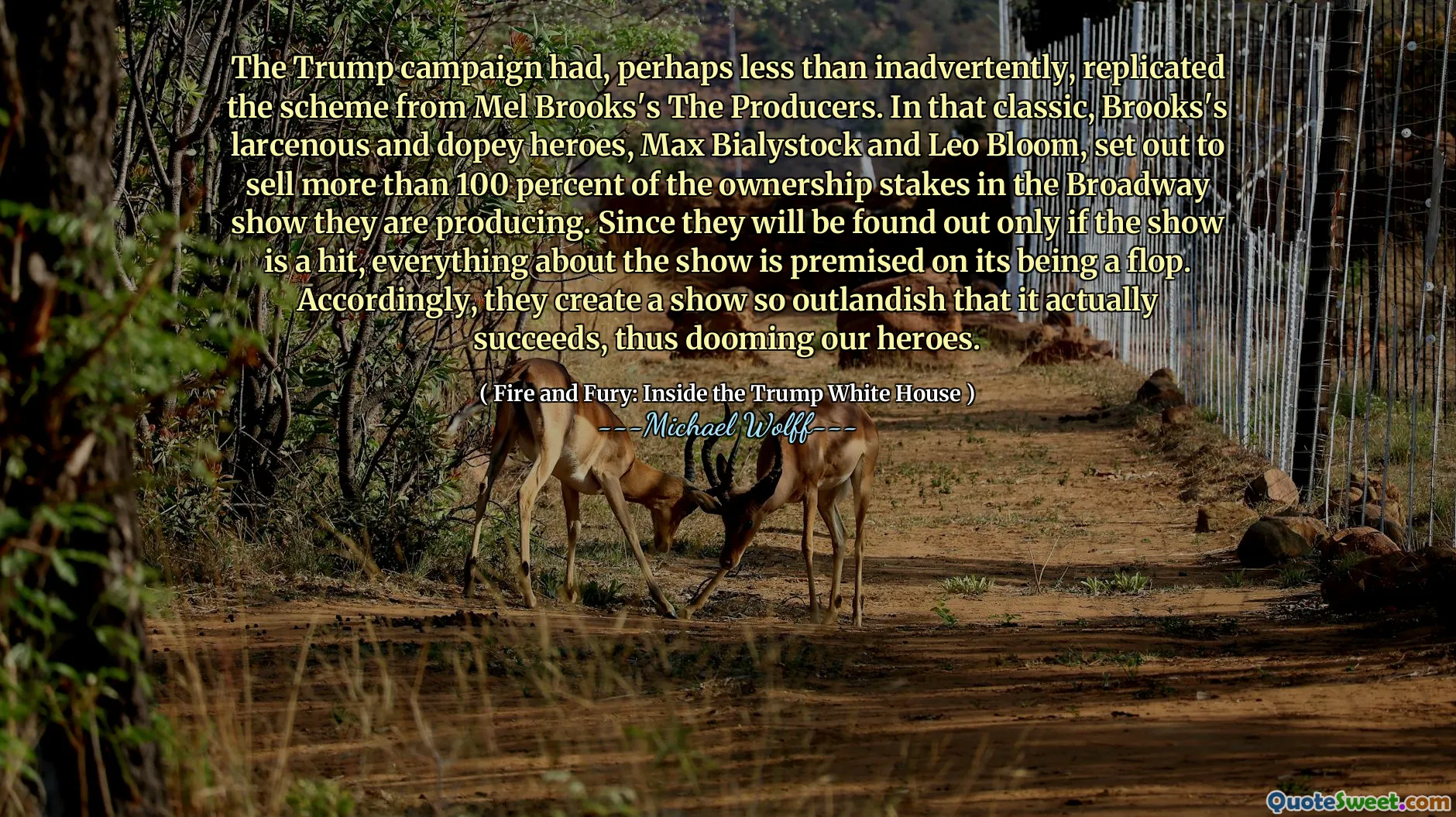
The Trump campaign had, perhaps less than inadvertently, replicated the scheme from Mel Brooks's The Producers. In that classic, Brooks's larcenous and dopey heroes, Max Bialystock and Leo Bloom, set out to sell more than 100 percent of the ownership stakes in the Broadway show they are producing. Since they will be found out only if the show is a hit, everything about the show is premised on its being a flop. Accordingly, they create a show so outlandish that it actually succeeds, thus dooming our heroes.
The Trump campaign, intentionally or not, mirrored the plot of Mel Brooks's film The Producers. In the movie, the main characters, Max Bialystock and Leo Bloom, try to profit by selling more ownership stakes in a Broadway show than actually exist, planning for it to fail. Their strategy hinges on the expectation that a flop would allow them to keep the excess funds without being caught. However, their plan backfires when they unintentionally create a show that becomes successful, leading to their downfall.
This analogy suggests that the Trump campaign's strategies, much like those of Bialystock and Bloom, were built on an expectation of failure. The parallels highlight themes of ambition and unintended consequences, showcasing how a plan aimed at exploiting a system can lead to unexpected success, much to the dismay of those who orchestrated it. Ultimately, it underscores the fragility of such schemes and the unpredictable nature of public response.











